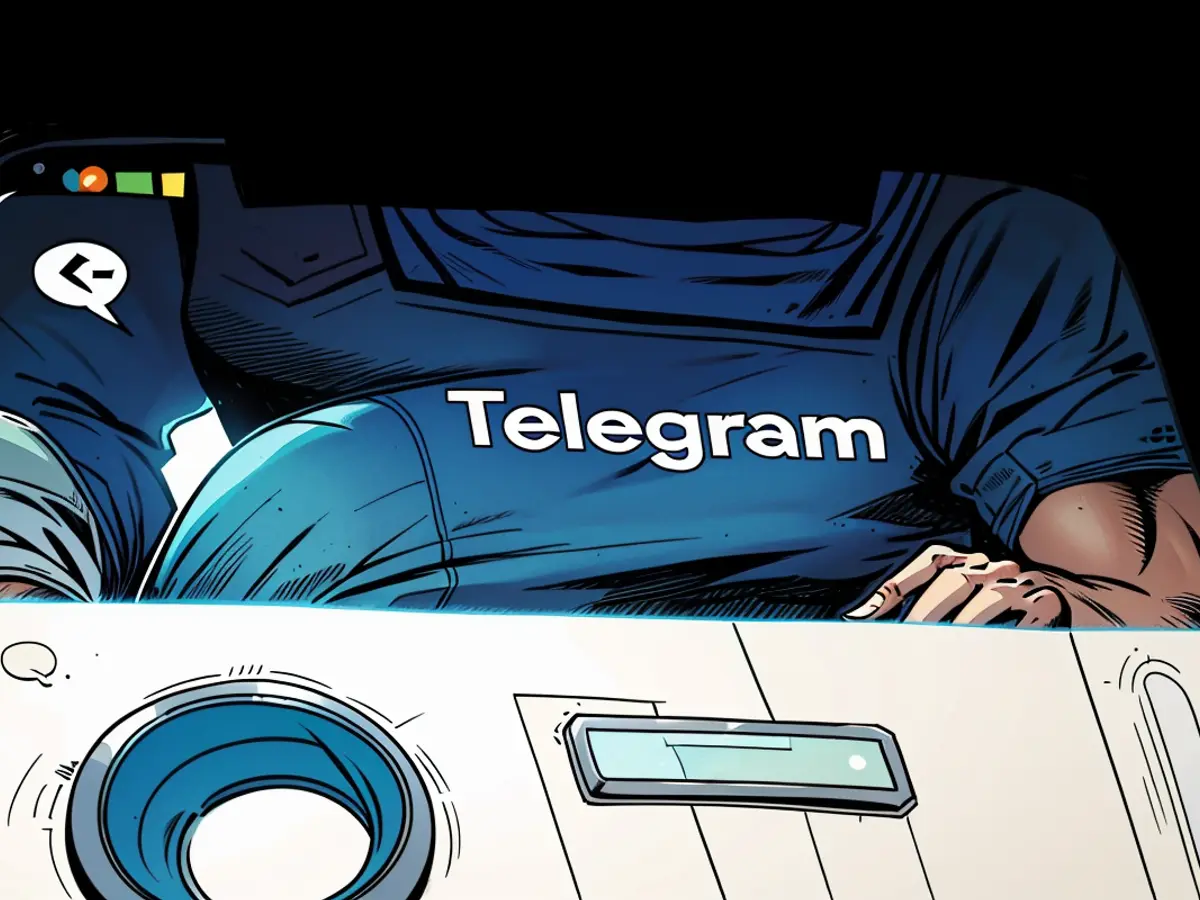Understanding Telegram, the messaging platform with its head honcho taken into custody during the past few days.
Russian-born Durov was apprehended on Saturday at Paris's Bourget Airport based on a warrant due to Telegram's lack of regulation.
The accusations leveled against his platform include allegations that it aided fraudsters, money launderers, drug dealers, and individuals distributing child exploitation content, as stated by French prosecutor Laure Beccuau in a Monday statement. Beccuau also mentioned that Durov is accused of not disclosing "information or documents" relevant to the investigation.
The application has also recently been under scrutiny for its use by terrorist groups and far-right extremists.
Durov's arrest sparked a discussion about freedom of speech and the responsible party for illicit content on the internet. Russian lawmaker Maria Butina—who was convicted in the US on espionage charges and deported to Russia in 2019—called the CEO a "political prisoner," according to Reuters, on Sunday.
However, French President Emmanuel Macron stated in a Monday post on X that Durov's arrest was "in no way a political decision."
"I'm reading false information about France following the arrest of Pavel Durov," Macron said, adding that the arrest occurred in the context of an ongoing judicial investigation.
The Paris prosecutor's office declared on Monday that Durov's arrest was part of a comprehensive probe into a wide range of criminal activities dating back to July 8 on Telegram, totaling 12 separate charges.
Telegram stated that it complies with EU law and that Durov has "nothing to hide."
This is what you should know about Telegram and why it's faced criticism.
What is Telegram?
Telegram is an encrypted messaging service launched in 2013 by Durov and his brother, Nikolai. With over 950 million users, according to a post from Durov last month, it's one of the most popular messaging platforms worldwide.
The platform has become essential in many countries for daily communication, photo and document sharing, and disseminating government messages due to its encryption.
Because conversations on the app are encrypted, law enforcement and Telegram have limited oversight on user content. This privacy makes Telegram a valuable communication tool in countries with restricted freedom of speech, such as Russia, Iran, and India. In Ukraine, it has become a vital tool for sharing news about the war and warning about air raids.
However, the same protections have also made the service popular among criminal elements, including drug traffickers, money launderers, and extremists, including white supremacists and terrorist groups such as ISIS.
Telegram allows up to 200,000 users to join individual chat groups, where misinformation can spread quickly. Other encrypted services, like Meta’s WhatsApp, have much smaller group size limits.
In March, Durov informed the Financial Times that the app was "nearing profitability" after introducing advertising and subscription offerings two years ago, and that the company was considering an initial public offering.
A platform that's attracted controversy
Beyond its use by criminals and extremists, Telegram has faced criticism for its involvement in major conflicts and political events, as well as its refusal to abandon its commitment to encryption.
In 2018, Moscow attempted to ban Telegram for refusing to provide decryption keys to Russian security services to read private messages. Durov vowed to defy the ban, which was eventually lifted in 2020.
Telegram became popular among Trump supporters and followers of the Q-Anon conspiracy theory in 2021 after mainstream social media platforms, like Facebook, began restricting false claims that the 2020 US presidential election was stolen. This led to concerns from law enforcement officials who worried that the disinformation could incite more real-world violence.
Last fall, Telegram restricted access to several channels closely associated with or operated by Hamas amid the militant group’s war with Israel.
And earlier this month, the messaging app began actively removing calls to violence from the platform following reports that the app was being used to organize far-right, anti-immigrant riots in the United Kingdom.
“Telegram’s moderators are actively monitoring the situation and are removing channels and posts containing calls to violence,” Telegram spokesperson Remi Vaughn said in a statement at the time. “Calls to violence are explicitly forbidden by Telegram's terms of service.”
Telegram moderators proactively monitor public parts of the platform and rely on AI tools and user reports to remove content that violates its rules, Vaughn said.
In its Sunday statement, Telegram claimed that it's "absurd to claim that a platform or its owner are responsible for abuse of that platform."
–Joshua Berlinger, Camille Knight, and Anna Chernova contributed to this report.
Despite Telegram's compliance with EU law and Durov's assertion of having "nothing to hide," the tech company has faced criticism for its role in facilitating illegal activities. Its popularity among criminal elements, such as drug traffickers and money launderers, stems from the platform's encryption, which also makes it a valuable communication tool in countries with restricted freedom of speech. The tech business side of Telegram also attracted controversy when Durov mentioned the app was "nearing profitability" after introducing advertising and subscription offerings.








